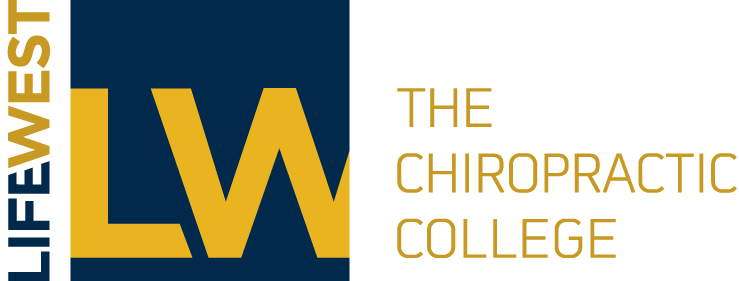There is no doubt that research in chiropractic has exploded over the last decade, from technique-specific benefits such as chiropractic biophysics and upper-cervical-specific techniques, to the science of subluxation itself. Physiological benefits including reduced blood pressure, increased proprioception and improved performance have demonstrated the physical aspects of care beyond pain management. But there seems to be a glaring gap in the realm of mental health. We will go so far as to state that yes, chiropractic does in fact “improve” mental health because it improves health and function overall. Of course, the disadvantage with studying mental health is the endless list of possible causes, generalized diagnoses, and the widely misunderstood aspects of the brain involved in mental illness and its connection to physiology. But since chiropractors work closely with the brain and nervous system itself, shouldn’t we be educated on the link between mental health and neurology?

Rebekka Kuzichev
Through researching articles involving chiropractic health, it is obvious that there isn’t much to choose from. When searching for mental health on databases such as PubMed, the results varied depending on the verbiage used. When searching using the terms mental health treatment, there were more than 164,000 results. Treatment is not a term holistic chiropractors typically use since it implies the treatment of the symptoms of a disease. However, when searching mental health and chiropractic, chiropractic benefits for depression or anxiety or any combination of chiropractic with mental health, there were just over 100 articles available, with the theme of the articles not even involving chiropractic benefits toward mental health.
One cross-sectional study involving a National Health Interview Survey directed their questioning toward children using alternative medicine such as herbal remedies, mind-body therapies and chiropractic. The questionnaire involved a list of mental health conditions including childhood stress, ADHD or ADD, anxiety or depression and autism. Out of 10,023 children, 18.7% of children were reported have at least one of these mental health conditions. From the children who reported having a mental health condition, only 19.2% used alternative medicine therapies.1
Children are becoming more and more unhealthy, especially with mental health and disorders such as autism on the rise. So why is alternative medicine only serving as a last resort? Shouldn’t chiropractors be the front-runners of brain health? This study further concluded that the main reason parents of affected children seek alternative medicine care was because it was more holistic and it helped. However, it was also stated that a substantially low percentage of medical doctors recommended the use of alternative therapies simply because of a lack of knowledge about the benefits.1
Children are not the only population in need of a better path to mental health. Another cross-sectional study involving veterans showed that only 12% of the vets used “manual therapies” such as massage or chiropractic, even though 21.7% suffered from depression, PTSD, or anxiety and a total of 41% suffered from chronic pain.3
These stats are alarming in that the mental health of our country is declining along with our physical health, except the difference is that physical health is much better understood and recognized.
According to Dr. Bessel Van der Kolk, author of The Body Keeps the Score, mental traumas are linked to physiology more than is perceived by anyone in the health profession, including both medical doctors and chiropractors. A traumatic event can have a life-changing impact on a person’s health but can also deeply impact the function of their nervous system. In a study for PTSD through the use of MRI, a flashback can shut down large areas of the brain such as the pre-frontal cortex and Broca’s area while hyperactivating the limbic system.2 People suffering from PTSD experience alterations to their neurology which significantly impacts daily function with or without flashbacks.
Since mental health is still widely treated with medication, without the aspect of neurology taken into consideration, a large number of people within the United States suffer from mental health conditions with no hope of recovering and end up with lifelong symptoms managed with pills. For the sake of the devastating state of health in this country (both mental and physical), the need for chiropractic for mental health is more important than it has ever been before. Ironically, the only research about chiropractic and mental health involves surveys that report a low percentage of people who actually seek out care. Overall the education and research about the benefits of chiropractic with mental health is slim to none and needs to be addressed since the mental health of this country is at a dangerous low and steadily declining still.
References:
- Donaldson MT, Polusny MA, Maclehose RF, Goldsmith ES, Campbell EMH, Miron LR, et al. Patterns of conventional and complementary non-pharmalogical health practice by US military veterans: a cross-sectional latent class analysis. BMC Complementary and Alternative Medicine [Inernet]. 2018 [cited2019, Jul 23];18(1). Available from: ncbi.nlm.nih.gov/pmc/articles/PMC6116551/
- Van der Kolk B. The Body Keeps the Score: brain, mind, and body in the healing of trauma. New York (New York): Penguin Books; 2015.
- Wang C, Preisser J, Chung Y, Li K. Complementary and Alternative Medicine use among Children with Mental Health Issues: results from the National Health Interview Survey. BMC Complementary and Alternative Medicine [Internet]. 2018. [cited 2019, Jul 23]; 18(1) Available from: ncbi.nlm.nih.gov/pmc/articles/PMC6116551/
This article first appeared in the August 2019 issue of Lifelines, the Life West student magazine.


